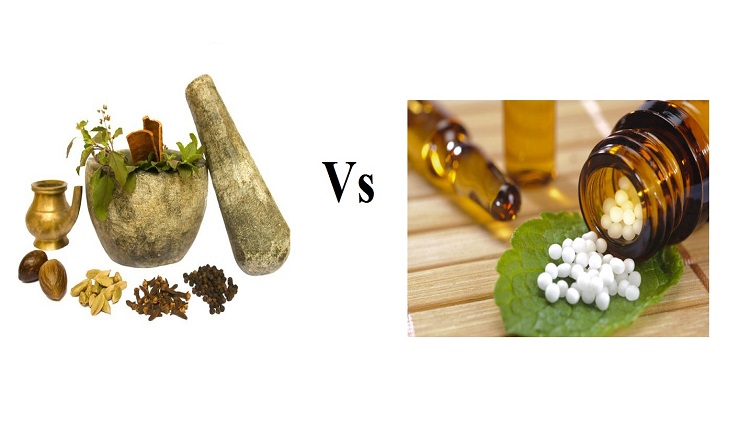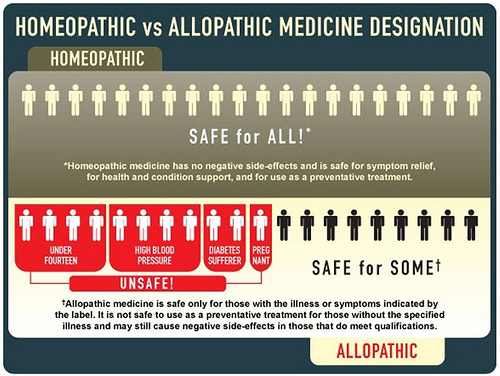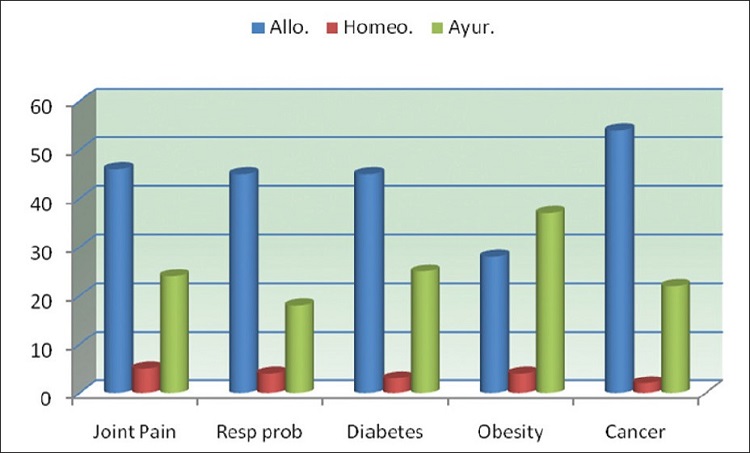
Diseases, illness, sickness, we would have been so fortunate if these words had never existed, but unfortunately, these are part of our lives and with this, we also have to be in sync with the different treatment options available and in any case, how to pick the best one. Choosing the best treatment option for a particular disease can get really confusing considering the merits and demerits of the available treatment methodologies, i.e. allopathy, homeopathy, and Ayurveda.
A Comparison Between Allopathy, Homeopathy and Ayurveda
Though Ayurveda is the oldest system of medicine, originated and used in India for ages and homeopathy slowly is making a mark amongst the different medicinal systems available, when it comes to the most preferred choice of medication, allopathy has the lion’s share of the market.
With the rising confusion and myths associated with these medications, it becomes important to compare all these medicine systems (allopathy, homeopathy, and Ayurveda) to find out the major differences between them and to get an idea of which one is ideal or best suited for different diseases at different times.
Allopathy

Allopathy is derived from the Greek word állos (other or different) + pathos (disease or suffering), which means “other than the disease.” Allopathy is essentially a piece of the Western therapeutic framework and is spread everywhere throughout the world. It is received by the majority of nations around the globe and is commonly called drug therapy. Allopathy is basically a drug-oriented methodology and relies on three things, hypothesis, experimentation, and the result of the experiment.
In this methodology, allopathic doctors are restricted by what they can do on the grounds that they just have to concentrate on the symptoms of a disease and not on the causes of those symptoms. It appears that there is a pill for each evil and then, a pill for all their side effects. It is known that allopathy only offers a partial cure, as the drugs are made to only cure the reaction and not the root cause. The effectiveness of allopathic medicines during an emergency is the fundamental reason why it is adopted by most people all around the world.
The main disadvantage of allopathy is that most of the medicines are associated with some side effects. The pill given to treat a disease cures that particular disease but might give birth to another disease in the body. These side effects can be internal or external. Once the disease is cured, a person needs to take medicines to adverse side effects caused due to that medicine.
For example, if a person takes allopathic medicines such as a Paracetamol tablet to cure fever. The tablet brings down the high body temperature to normal but the tablet also hurts the liver.
#Fact: It is important to note that there is no place for individuality in allopathy as the same pill is given to patients suffering from the same disease.
Homeopathy

Homeopathy, the name is derived from two Greek words (hómoios + pathos) meaning “like disease.” It means that a substance that causes the symptoms of a disease in a healthy person will cure the same disease in a sick person. (We bet you will read that again). According to this methodology, substances that produce symptoms of a disease will have a curative effect on a sick person exhibiting the same symptoms, when given in very dilute quantities.
Homeopathy is a holistic system of treatment that originated in the 18th century and has been proven to be safe, effective, and curative. It has been in use for the last 200 years, by hundreds of millions of people. It embraces the body’s natural response system by attacking the root cause of illness or by encouraging the symptoms of healing. This is why it is meant to completely cure a disease. The homeopathic medicines are non-toxic and do not have any side effects. It works by using very small doses of potential substances to stimulate the immune system which helps in healing the patient naturally.
Recommended Read: 10 Commonly Used Homeopathic Medicines
Homeopathic treatment is effective in treating many medical conditions such as cold, flu, influenza, infections, circulatory problems, nervous and respiratory disorders, heart disease, depression, headaches, allergies, diabetes, arthritis, etc. when these are found at early stages.
Homeopathic doctors seek to cure their patients not only on the physical levels but also on the mental and emotional levels. The treatment is aimed to cure each patient as per their individual needs.
Homeopathy is generally known for its non-toxic nature as it uses medicines in very small quantities, and has minimal chances of any side effects which makes it a good treatment option for children.
#Note: Homeopathy does not encourage both the use of homeopathy and allopathy simultaneously for the same disease (allopathy suppresses the symptoms of a disease which makes it difficult for a homeopathy practitioner to judge the condition of the patient and decide what medicine to give or what the potency of medicine should be).
Ayurveda

Ayurveda is a Sanskrit word that is formed from two words, “Ayus” meaning life, and “Veda” meaning knowledge or science. So the term Ayurveda resembles, “The Knowledge of Life.”
Ayurveda is also known as the science of natural healing because it derives its medicines purely from nature. Ayurveda originated in India and is 5000-year-old medical knowledge system. According to Ayurveda, body, mind, and spirit are connected with each other.
The most part of Ayurveda is connected with the cures accessible from nature. It also deals with the root cause of the problem and is a permanent cure in most of the cases. In most of the cases, a patient treated with Ayurveda not only gets cured but also gets the permanent immunity. The main advantage that Ayurveda has over homeopathy is that the former just uses natural means to cure a disease and is the most eco-accommodating approach to getting cured. It has been proved that –
“Ayurveda is the mother of all the medication”
and every other type of medication is derived from the science of Ayurveda.

Most of the people believe that Ayurvedic medicines do not have any side effects, which is not true. Ayurvedic medicines can cause adverse effects if not used properly as the methodology follows an individualistic approach. The body’s response to Ayurvedic medicines might depend on various factors including age, selection of drug, and chronicity of disease.
It is believed that Ayurveda follows the “Five Great Elements” theory, which insists that the “fault,” “tissue,” and the “impurity” should be in harmony with all the five elements used to form this human body, i.e. Prithvi (Earth), Jal (water), Agni (Fire), Vayu (air), and Akash (space). According to this methodology, there should be a balance in the three elemental energies, Vayu (air+space=”wind”), pitta (fire+water-“bile”), and Kapha (water+Earth=”phlegm”). Ayurveda explains that, when these three energies are in a balanced state or exist in equal proportion, the body will remain healthy and if they are not balanced, the body will become unhealthy in many ways.
#Myth – Ayurveda takes longer to cure – The time taken to cure a disease in Ayurveda depends on how much imbalance the patient is carrying and for how long. Generally, the time taken by medicine to act in the body is between 20-25 minutes.
How is Ayurveda different from Homeopathy

- Ayurveda believes in preventing a disease, on the other hand, homeopathy believes in curing it.
- Ayurvedic medicines complement allopathic medicines while homeopathy is against it.
- According to Ayurveda, the health and well-being of a person depend on the balance of three key components, the wind, bile, and phlegm, whereas homeopathy believes in the “vitalist” philosophy which says that some internal or external factors disturb the vital force of the body which affects the health of a person.
- Ayurveda uses some surgical procedures such as “Kshar sutra” or purification techniques like “Panchkarma” for treating diseases, which is not in the case of homeopathic treatment.
- Ayurvedic medicines use herbs, minerals like sulfur, copper, lead, arsenic, gold, vegetable drugs, and animal products such as milk, gallstones, and bones to make the medicines. Homeopathic medicines use various plants, synthetic materials, and mineral substances that are diluted in alcohol or distilled water. The final medicine contains only a small percentage of the substance.
- Safety Issues: Ayurvedic medicines may incorporate a small amount of toxic materials such as lead, mercury, and arsenic while homeopathic medicines contain water and alcohol, and the use of toxic materials is very rare.
How is Homeopathy different from Allopathy

- Homeopathy seeks to embrace the body’s natural response system by either attacking the root cause of the illness or by encouraging the symptoms of healing, whereas, allopathy fights the body’s natural response system by attacking the symptoms of healing.
- Homeopathy is a method of treating disease with remedies that produce effects similar to those caused by the disease itself. Allopathy is a method of treating disease with remedies that produce effects different from those caused by the disease.
- Homeopathic treatment generally takes time to show results as it focuses on hitting the root cause of the disease, whereas allopathy can show results very quickly, as it immediately suppresses the symptoms of a disease, leaving out another problem in the form of a side effect.
- Most homeopathic medicines show permanent results, i.e. once a disease is completely treated over the course of time, it will not occur again. Allopathy, on the other hand, provides a partial and quick relief from a disease that may not be permanent.
How is Allopathy different from Ayurveda

- Allopathy takes the body in pieces, is objective and incomplete in nature while Ayurveda takes the body as a whole and the physician has knowledge of all the systems of medicines.
- Allopathy is a system of physical health and it believes in the replacement of the organs or systems for treatment and is not much worried about the cure. Ayurveda, on the other hand, focuses on wellness as a complete package, be it physical, psychological, spiritual, or social wellness.
- Allopathy is a system of side effects (internal or external) whereas, Ayurveda is a natural cure in which the scope of side effects is very less or mild.
- Allopathy focuses on suppressing the signs and symptoms of a disease and never removes the disease-causing factors completely. Ayurveda considers that until a body has the disease-causing factors, diseases will keep hitting again and again. It considers detoxification as a primary part of the treatment.
- Allopathic medicines partially cleanse the body while ayurvedic medicines decontaminate the whole body.
Side effects of Allopathy, Homeopathy and Ayurveda
Side effects of Allopathy
It is associated with a chain of side effects connected with every medicine, which can be internal or external.
Common Side Effects:
- Gastrointestinal Issues: Allopathic medications, especially nonsteroidal anti-inflammatory drugs (NSAIDs) and certain antibiotics, may cause stomach upset, nausea, or diarrhea.
- Allergic Reactions: Some individuals may experience allergic reactions to medications, leading to skin rashes, itching, or more severe responses like anaphylaxis.
- Liver and Kidney Issues: Long-term use of certain medications can potentially affect liver and kidney function.
Considerations:
- Conventional medicine often targets specific symptoms or diseases with drugs that may have side effects.
- The use of antibiotics can lead to antibiotic resistance.
Side effects of Homeopathy
Generally homeopathic medicine does not have any side effects when taken in adequate amounts and proper guidance of a practitioner.
Common Side Effects:
- Initial Aggravation: Homeopathic remedies might produce a temporary worsening of symptoms before improvement.
- Allergic Reactions: In rare cases, individuals may experience allergic reactions to homeopathic remedies.
Considerations:
- Homeopathy uses highly diluted substances, and side effects are often minimal.
- It’s generally considered safe, but individual responses can vary.
Side effects of Ayurveda
Ayurveda is merely associated with a few side effects which are very mild in nature.
Common Side Effects:
- Gastrointestinal Distress: Some Ayurvedic preparations may cause digestive issues in sensitive individuals.
- Heavy Metal Contamination: Traditional Ayurvedic remedies may contain heavy metals, which can be harmful if not properly processed.
Considerations:
- Ayurveda focuses on holistic health and balancing the body’s energies.
- Quality control is crucial to ensure the safety of Ayurvedic products.
Which medicinal treatment one should follow:
All the medicine systems, allopathy, homeopathy, and Ayurveda have their own merits and demerits and your choice should depend on the disease, cause of illness, possible ways of treatment, etc. Homeopathy is really effective in treating both acute and chronic illness as it treats the root cause of the illness which is not in the case of allopathy. Allopathy has a good investigation, testing, and practicing system. It relies on many tests, techniques, scans, surgery, etc., and has been widely used all over the world, but it alleviates the symptoms of the disease rather than going deeper into the cause. Apart from this, allopathy is also associated with side effects and allergies.
Ayurveda and homeopathy believe in an individualistic approach and treat patients accordingly. Apart from medicine, these types of treatments focus on the whole lifestyle such as diet, attitude, exercise, etc. But these methodologies also have some loopholes. There is a shortage of practitioners, a lack of proper scientific research & investigations, and proper boards to manage practitioners or standardize the medications.
It is important to know that one form of medication system may be effective for a particular person or a particular disease at a particular time, but may not at another point.
Subscribe to our Youtube channel for more health related videos.
Which medicinal system do you prefer between allopathy, homeopathy and Ayurveda, and why? Tell us in the comment below.

suffering with hemeplegia since fouryears
visited somany hospitals for recoverythe result is nil.because ofstiffness injontsgetting much pain not abeletodophysio therappycan you kindly suggest howtorecover
Hemiplegia is a permanent condition and generally, it can’t be cured. But it will not worsen either. You can try physical therapies such as heat, massage, and exercise to stimulate nerves and muscles.